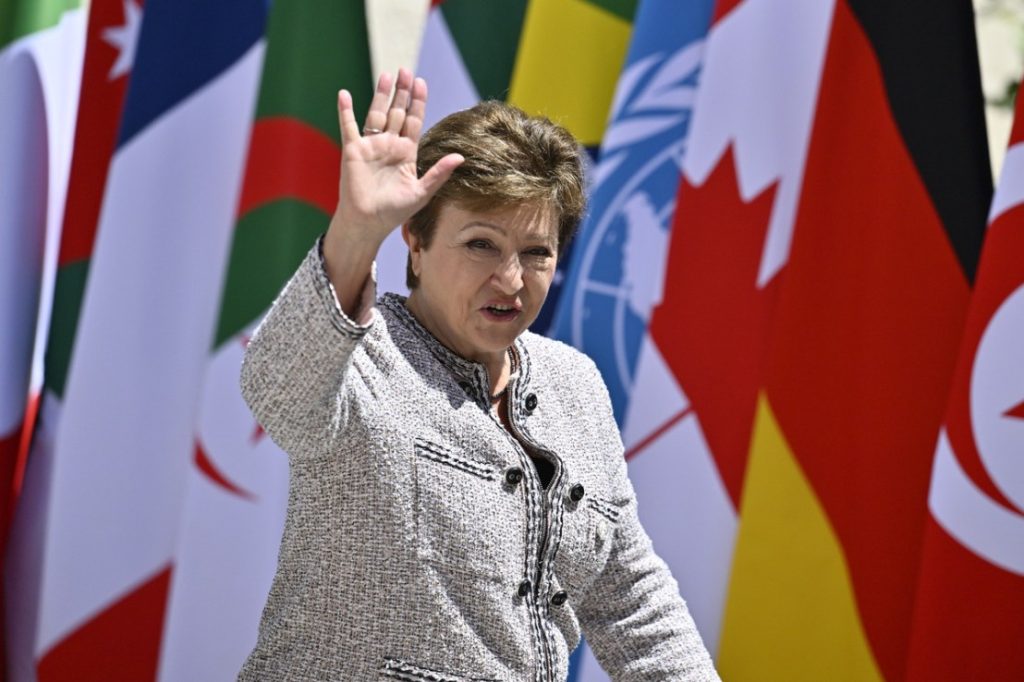The upcoming IMF and World Bank meetings in Washington are set to become the focal point of global economic discourse, particularly as they grapple with uncertainties surrounding the U.S. tariff policies under President Donald Trump. The meetings, which convene finance ministers, senior politicians, and influential economic figures, are poised to address pressing issues like global debt, financial stability, and aging economies. However, the conversation is expected to be dominated by the tension surrounding the United States’ recent announcement of « reciprocal » tariffs, which, after causing financial market turbulence, have been temporarily paused.
The Impact of Tariff Uncertainties
The suspension of the U.S. tariff implementation has granted a 90-day reprieve to many trading partners, but the looming threat of these tariffs still casts a shadow over international trade discussions. Economists have raised concerns that the barriers and uncertainties tied to these tariffs could exacerbate a slowdown in global trade, pushing the world economy towards the brink of recession. Nevertheless, IMF Managing Director Kristalina Georgieva has tempered these fears by stating that while the IMF’s growth projections will see notable markdowns, they do not forecast a recession.
Georgieva has reiterated the importance of avoiding any actions that could further destabilize the global economy. In the wake of Trump’s « Liberation Day » announcement, she called for constructive dialogue between the United States and its trading partners to mitigate trade tensions and uncertainty. This appeal underscores the critical nature of these discussions at the upcoming meetings.
Trade Negotiations on the Agenda
The biannual summit also serves as a crucial platform for bilateral and multilateral trade discussions. G20 finance ministers, including UK’s Chancellor Rachel Reeves, will be actively seeking opportunities to engage with the Trump administration in efforts to broker trade agreements that might alleviate current tensions. These negotiations are essential as they could set the tone for future trade relations and potentially reduce the economic impact of the proposed tariffs.
In addition to trade talks, the summit coincides with the release of quarterly results from several of the U.S.’s tech giants, such as Alphabet and Tesla. Both companies are under scrutiny as they prepare to disclose their financial performance for the year’s first quarter. Tesla’s results are particularly anticipated, given the nosedive in sales of its electric vehicles and the company’s controversial political entanglements in both Europe and the United States.
Steering Towards Economic Stability
Amidst these developments, there is a palpable challenge for global leaders to navigate the uncertainties of this economic landscape. With the IMF and World Bank as conveners, the meetings are positioned as a critical juncture for formulating strategic approaches that emphasize cooperative problem-solving and economic stability.
The meeting’s outcomes will not only reflect the current economic sentiments but also chart the course for the future direction of global trade policies. The presence of significant economic players and policymakers underscores the importance of this assembly in fostering international collaboration and maintaining momentum in addressing shared global challenges.
With these dynamics in play, the world watches as the IMF and World Bank meetings unfold, knowing that the decisions made here could reverberate through financial markets and influence economic growth trajectories globally. The stakes are high, and the necessity for thoughtful, decisive action will be clearer than ever.
